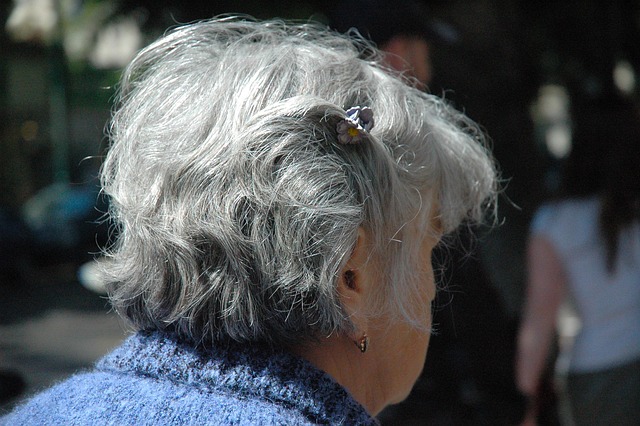Seniors require tailored healthcare and well-being strategies due to changing physical and mental health, as well as increased social isolation in the digital age. Key elder care tips include customized routines, regular medical check-ups, accessible home environments, personal engagement, respect for autonomy, and community fostering. Creating a supportive home with safety features and designated spaces improves independence and quality of life. Encouraging physical activity, healthy habits, balanced nutrition, and adequate sleep is vital, along with promoting social interactions to maintain seniors' dignity and autonomy.
As our population ages, prioritizing healthcare and emotional well-being for seniors becomes paramount. This article offers comprehensive elder care tips tailored to meet the unique needs of this demographic. We explore essential aspects such as understanding their distinct health considerations, creating nurturing home environments, encouraging physical activity, and fostering mental wellness through social connections and therapy. By implementing these strategies, we can enhance the quality of life for seniors, ensuring they age gracefully and with dignity.
Understanding the Unique Needs of Seniors
Seniors have unique healthcare and emotional well-being needs that must be acknowledged and addressed. As people age, their physical and mental health can change significantly, making it essential to tailor care strategies accordingly. For instance, age-related conditions such as arthritis, heart disease, or dementia require specialized management. Additionally, seniors often face social isolation, particularly in today’s digital age, which can negatively impact their emotional health.
Understanding these specific needs is crucial when prioritizing elder care tips. Customized routines, regular medical check-ups, and accessible environments are some key elements to ensure their overall well-being. Engaging with them on a personal level, respecting their autonomy, and fostering a sense of community can also make a substantial difference in their lives, promoting independence and enhancing their quality of life.
Creating a Supportive Environment at Home
Creating a supportive environment at home is an essential aspect of elder care tips for ensuring seniors’ well-being. It involves making modifications to their living spaces that cater to their unique needs and promote independence. For instance, installing grab bars in bathrooms and eliminating trip hazards can enhance safety during mobility. Additionally, creating designated areas for relaxation and social interaction encourages a sense of comfort and belonging.
A cozy and accessible home environment reduces the risk of falls and promotes mental health by fostering a sense of security. Simple adjustments like ensuring proper lighting, keeping frequently used items within easy reach, and incorporating soothing decor can significantly impact seniors’ quality of life. These elder care tips not only enable them to live more comfortably but also empower them to maintain their dignity and autonomy in the familiar surroundings of their homes.
Encouraging Physical Activity and Healthy Habits
Encouraging physical activity and healthy habits is a cornerstone of elder care tips for seniors. Regular exercise, tailored to their individual abilities and preferences, can significantly improve overall health and cognitive function. Simple activities like walking, swimming, or even chair yoga can enhance flexibility, strengthen muscles, and boost cardiovascular fitness, all while reducing the risk of chronic diseases. Incorporating these habits into daily routines not only promotes physical well-being but also boosts mental sharpness and emotional resilience.
In addition to physical activity, fostering healthy habits such as balanced nutrition and adequate sleep is vital. Nutritious meals, rich in fruits, vegetables, and lean proteins, support immune systems and overall organ function. Adequate rest, on the other hand, allows seniors to recharge, process memories, and maintain emotional balance. Combining these practices with regular social interactions can create a powerful trifecta of elder care tips, contributing to improved quality of life and enhanced independence for our aging population.
Nurturing Mental Well-being Through Social Connections and Therapy
Maintaining mental well-being is an essential aspect of senior care tips. As people age, social connections and therapy can play a pivotal role in nurturing their emotional health. For many seniors, routine social interactions may decrease with time, leading to feelings of isolation and loneliness. However, fostering meaningful relationships and engaging in regular conversations can significantly combat these issues. Visiting with family, participating in community events, or joining senior-focused support groups are excellent ways to encourage social connections. These activities not only provide companionship but also a sense of belonging, which is crucial for overall mental well-being.
Additionally, therapy can be a game-changer for seniors’ emotional health. Whether it’s through individual counseling, group therapy sessions, or even online support platforms, accessing professional help can offer valuable tools and strategies for managing stress, anxiety, and depression. Therapists can guide seniors in exploring coping mechanisms, improving self-esteem, and developing resilience, ultimately enhancing their quality of life. Incorporating these practices into elder care routines ensures a holistic approach to senior well-being, addressing both physical and mental health concerns.
Prioritizing healthcare and emotional well-being for seniors involves a multifaceted approach. By understanding their unique needs, creating supportive home environments, encouraging physical activity, and nurturing mental health through social connections and therapy, we can significantly enhance their quality of life. Adopting these elder care tips not only promotes independence but also ensures that our aging population receives the comprehensive care they deserve, enabling them to live happier, healthier lives.
